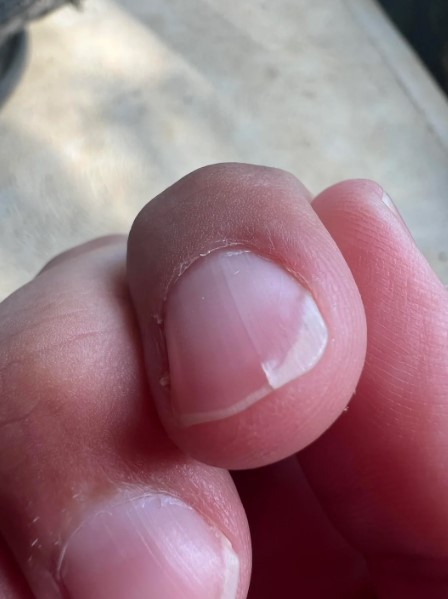Split nails may happen due to nail biting, excess moisture, infection or injury, or psoriasis. You can’t always prevent split nails, but using moisturizer and nail hardening products may help.
Healthy, strong nails are typically taken for granted, but their condition can be a surprise predictor of your overall health. When nails often split, break, or show strange symptoms, they may indicate nutritional inadequacies or underlying health issues. Recognizing these indicators early on can not only improve the appearance of your nails, but it can also alert you to body needs that, if handled promptly, can improve your overall health and prevent future complications.
In this nail health exploration, we will look at the numerous reasons why nails can become weak or brittle, as well as what your body is trying to communicate via these changes. Understanding these causes, which range from the effects of your diet and environmental variables to more serious health concerns, can help you make informed decisions about your nutrition and lifestyle, and when to seek professional guidance. This comprehensive look at nail health aims to equip you with the information you need to maintain not only beautiful nails but also a healthy body.
Biotin, a B vitamin, is essential for the health of your hair, skin, and nails. A biotin deficit can result in brittle, easily splitting nails. Biotin-rich foods include eggs, almonds, cauliflower, cheese, mushrooms, sweet potatoes, and spinach.
Dehydration can have a big influence on your nails, making them brittle and more likely to split. Drinking enough of water throughout the day helps keep nails flexible and strong.
What does it mean when your nails split?
A split nail is characterized by a crack forming in your nail. Nail splits can be horizontal, across the nail’s tip, or vertical, splitting the nail in two.
Common causes of split nails include:
Moisture
Moisture can cause nails to become weak and brittle. Long-term exposure can cause the skin around the nail to soften.
The nail itself becomes brittle, making it easier to break, bend, or split. Overexposure to moisture can occur while doing dishes, washing hands, or repeated nail polish use.
Picking or biting
Many people have a habit of picking their fingernails and toenails. Picking or biting is usually a result of anxiety or nervousness.
Picking or biting your nails can cause stress to the nail and result in a self-inflicted split or broken nail.
Injury
An injury is a likely cause of a split nail. Crushing your nail tip or bed can result in your nail growing with a ridge or split-like appearance.
Injury and weakening can also happen with fake nails.
Infections
Fungal, bacterial, or yeast infections in the nail bed can change the texture of the nails, resulting in weakened and split nails.
Psoriasis
Psoriasis can affect both the skin and the nails.
Psoriasis can cause nails to thicken, crumble, or split. About 40–50% of people with psoriasis are believed to experience nail symptoms.
Diseases
Certain diseases may also cause nail health to decline, which could contribute to nail splits.
Diseases that may contributeTrusted Source to nail problems include:
thyroid disease
liver disease (cirrhosis)
stomach cancer
heart disease
HIV
lupus
necrotizing vasculitis
